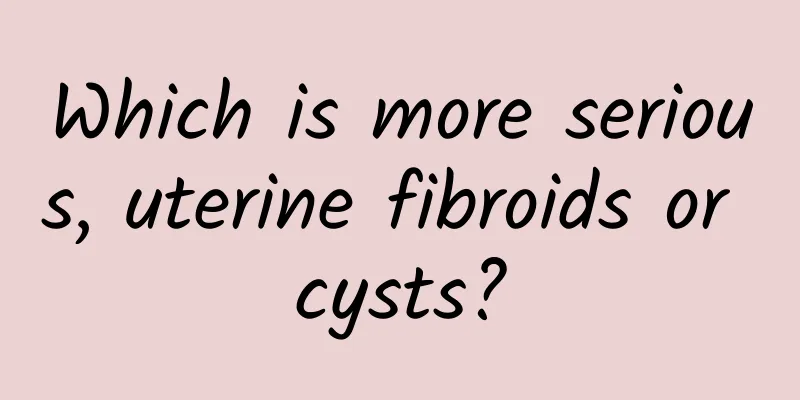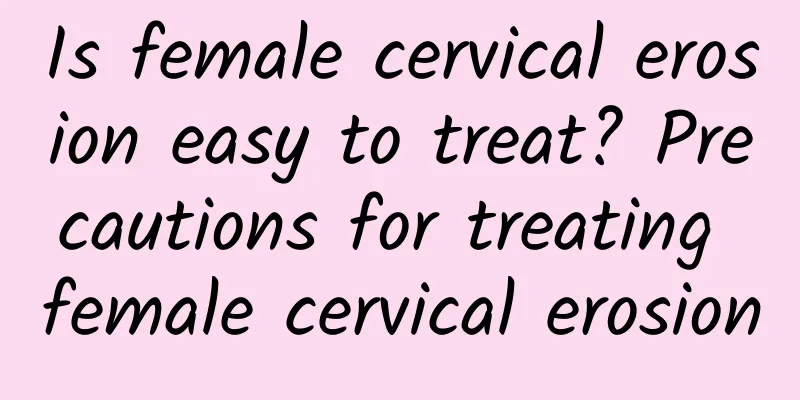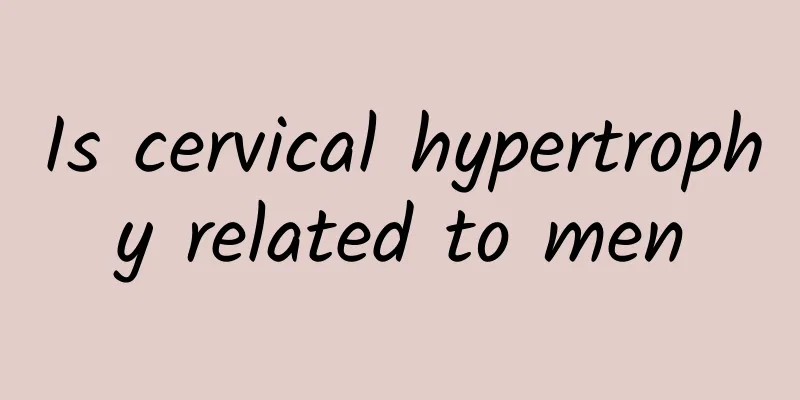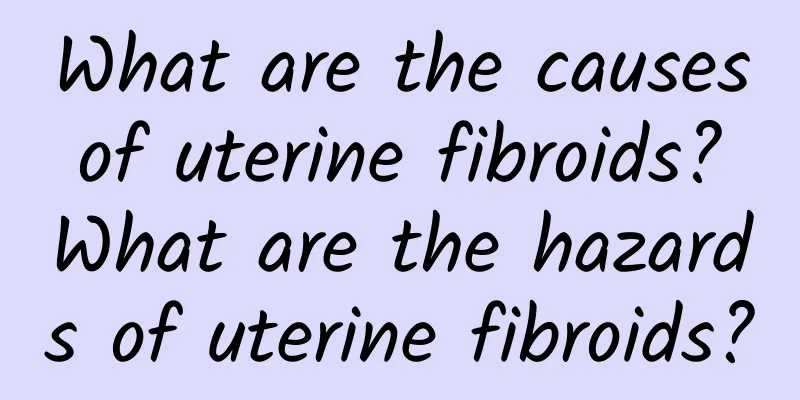Which is more serious, uterine fibroids or cysts?

|
Uterine fibroids and cysts are both benign diseases that usually do not seriously affect health. There is no direct comparison between the two in terms of severity, and timely medical treatment and regular check-ups are key. 1. Basic concepts of uterine fibroids and cysts Uterine fibroids and cysts are two common gynecological diseases. Uterine fibroids are usually caused by increased estrogen levels in the body, while cysts, especially cervical cysts, may be caused by glandular duct blockage caused by cervical injury or inflammation, resulting in the accumulation of secretions. Although the name sounds a bit scary, they are usually benign. 2. Symptoms and treatment methods For uterine fibroids, if the fibroids are small and have no obvious symptoms, usually no treatment is needed, just regular observation. If the fibroids are large or have obvious symptoms, such as heavy menstrual flow or pain, surgical treatment may be required. Cervical cysts are treated similarly. If the cyst is small and asymptomatic, you can choose to observe it. If the cyst is large or is accompanied by unusual symptoms, such as abnormal vaginal discharge, you may need to treat it by puncturing the cyst surgically, which usually works well. 3. The importance of regular inspections Whether it is uterine fibroids or cervical cysts, regular check-ups are very important. Through regular ultrasound examinations, doctors can monitor the progression of the disease and adjust treatment plans in a timely manner if necessary. For most women, regular physical examinations are an effective means of preventing and early detection of gynecological diseases. 4. Influence of lifestyle A healthy lifestyle can also affect the development of uterine fibroids and cysts to a certain extent. Maintaining a good diet, exercising moderately, avoiding obesity, and maintaining mental health may all help prevent and control these diseases. Eating a moderate amount of fiber-rich foods and reducing the intake of high-fat foods may also help regulate hormone levels in the body. 5. Mental health and support As with any health issue, mental health and support systems are equally important. Sharing your concerns with family and friends, or seeking professional counseling, can help reduce anxiety and stress. Maintaining a positive attitude not only helps with coping with illness, but also helps with overall health. Although common, uterine fibroids and cysts are not usually a serious health threat. Most women can effectively manage these health problems with regular checkups, appropriate lifestyle adjustments, and medical intervention when necessary. Remember, any physical discomfort should be promptly consulted to ensure health care. |
<<: I took Fematone for 28 days, but my period still hasn't come.
>>: Can I drink Motherwort Granules during my menstrual period?
Recommend
Does pelvic peritonitis always recur?
Many gynecological diseases are always difficult ...
What is the difference between cervicitis and cervical erosion?
What is the difference between cervicitis and cer...
What are the main diagnostic criteria for irregular menstruation?
Many women cannot correctly judge whether they ha...
What are the symptoms of vulvar leukoplakia? What are the early symptoms?
What are the symptoms of vulvar leukoplakia? Ther...
How long after abortion can I exercise?
How long after an abortion can you exercise? Alth...
What should you pay attention to after abortion
After a miscarriage, women need to pay attention ...
The main symptoms of vulvar leukoplakia
Vulvar leukoplakia is a gynecological disease, an...
What does cervical erosion-like changes mean? What should I do if it happens?
Cervical erosion-like changes refer to inflammati...
What examinations do women need to do before having an abortion?
Many women get pregnant without taking any protec...
Japanese survey: Okinawa, the holy land of longevity, ranks first in obesity rate
However, data from a national health survey recen...
Next, let’s find out how long it takes to go to the hospital for a follow-up check-up after a miscarriage?
Spontaneous abortion is a type of abortion that w...
How much does painless abortion cost in Xi'an
How much does painless abortion cost in Xi'an...
What causes lower abdominal pain after miscarriage? Is it physiological or pathological?
Lower abdominal pain after miscarriage may be cau...
Can I get pregnant if I have ovarian cysts? What are the medical treatments?
Can I get pregnant with ovarian cysts? What are t...
What adverse symptoms will irregular menstruation cause to women?
Although irregular menstruation is a common sympt...









